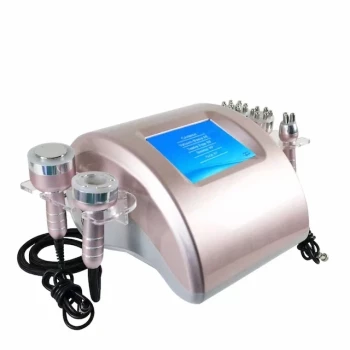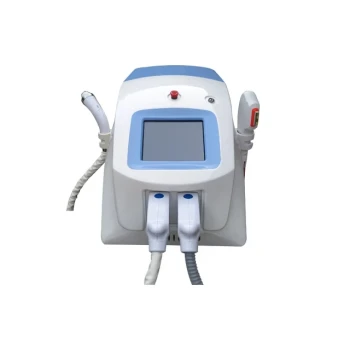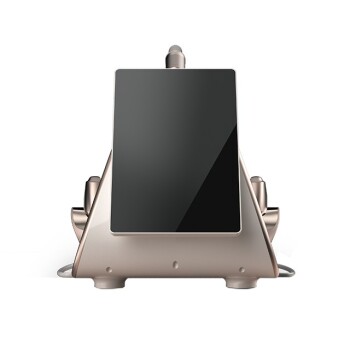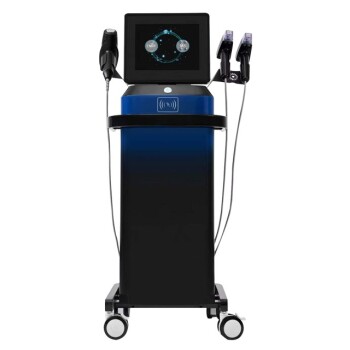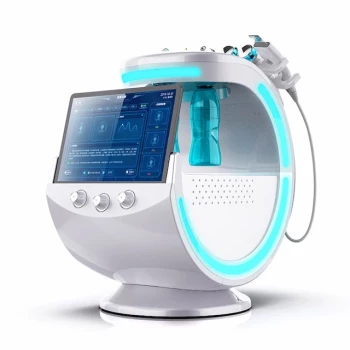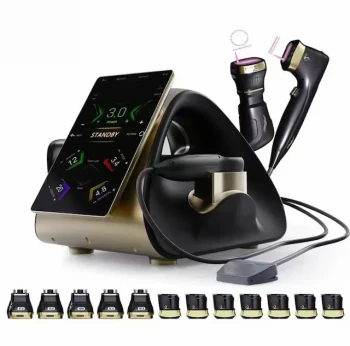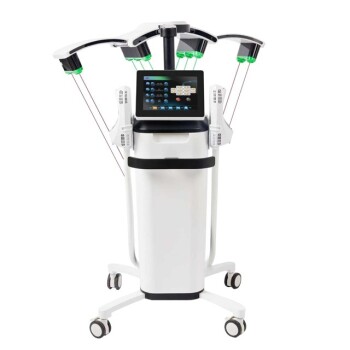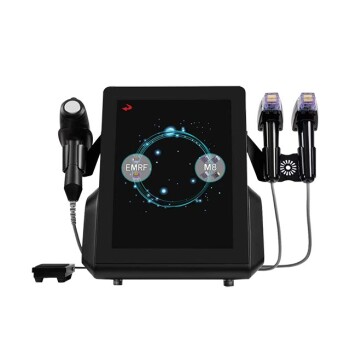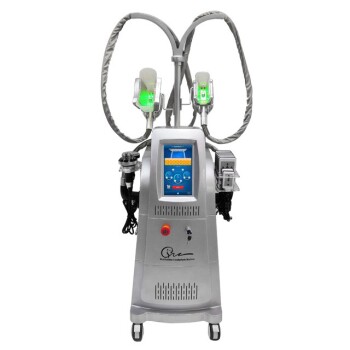A range of trained professionals can perform radio frequency skin tightening, but their qualifications and the setting in which they practice are what truly matter. The list includes board-certified dermatologists, plastic surgeons, and licensed aestheticians or nurses operating in a medical setting.
The specific title of the practitioner is less important than the presence of medical oversight. A safe and effective RF treatment hinges on the provider's specific training, the quality of the equipment, and direct supervision by a physician, especially in a medical spa setting.
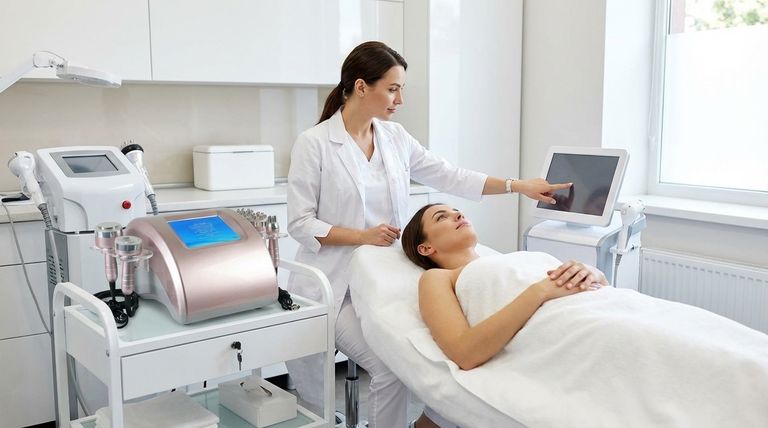
Understanding the Spectrum of Providers
Choosing a provider for any cosmetic procedure can feel complex. For radio frequency treatments, the options fall into a few key categories, each with distinct qualifications and scopes of practice.
Physician-Level Providers
Physicians like board-certified dermatologists and plastic surgeons represent the highest level of qualification. Their extensive medical training allows them to diagnose underlying skin conditions, manage potential complications, and perform more advanced or intensive RF procedures. They have a deep understanding of facial and body anatomy, which is critical for achieving optimal results while ensuring safety.
Aestheticians and Nurses in a Medical Setting
Licensed aestheticians and registered nurses are often the ones who perform the hands-on RF treatment, particularly in medical spas or dermatology clinics. These professionals can be highly skilled and are specifically trained to operate the RF devices. However, the key to safety is that they must work under the supervision and guidance of a medical director, who is a licensed physician.
The Role of the "Medical Spa"
A true medical spa (medspa) operates under the license of a physician. This is a non-negotiable standard. This structure ensures that proper clinical protocols are followed, clients are appropriately screened for contraindications, and a doctor is available to manage any adverse reactions.
The Critical Factor: Oversight and Training
The title on the door is only part of the story. The quality of your treatment is determined by the standards of the practice itself.
Why a Medical Director is Non-Negotiable
A medical director is legally responsible for the procedures performed. Their oversight ensures that the facility uses appropriate, FDA-cleared devices and that all staff are properly trained and follow established safety protocols. Without this oversight, you are taking an unnecessary risk.
Device-Specific Expertise
Operating an RF device is a technical skill. A qualified provider will have received direct training from the device manufacturer or a certified clinical trainer. Ask your provider about their specific training on the machine being used for your treatment.
The Importance of the Consultation
A thorough consultation is a hallmark of a professional and safe provider. This process should involve a review of your medical history, a discussion of your goals and expectations, and a clear explanation of the procedure, potential risks, and expected outcomes.
Understanding the Risks and Trade-offs
Making an informed decision requires understanding the potential downsides of choosing an unqualified provider.
Cost vs. Expertise
Treatments offered by a dermatologist or plastic surgeon may come at a premium. This cost reflects their years of medical education, their ability to handle a wider range of issues, and the comprehensive insurance they carry. While less expensive options are tempting, they may lack this crucial level of accountability.
Ineffective Treatment
An improperly performed RF treatment is not just a safety risk—it can also be a waste of time and money. An operator who lacks a deep understanding of skin physiology may use settings that are too low to stimulate collagen production, leading to no discernible results.
The Dangers of Inexperience
The most significant risk is physical harm. In the hands of an untrained individual, an RF device can cause serious burns, blistering, scarring, or long-term changes in skin pigmentation (hyperpigmentation or hypopigmentation).
How to Choose the Right Provider for Your Goal
Your choice should align with your specific needs, comfort level, and the complexity of your goals.
- If your primary focus is the highest level of medical safety and you have other skin concerns: Schedule your treatment with a board-certified dermatologist or plastic surgeon.
- If you are seeking a standard, non-invasive treatment and have no complex medical issues: A licensed aesthetician or nurse in a reputable clinic, working directly under a physician's supervision, is an excellent choice.
- If you are considering a medical spa: Your first question should be to verify the name and credentials of the supervising medical director and ensure they are actively involved in the practice.
Ultimately, making an informed choice is about ensuring the person performing your treatment is operating within a safe, supervised, and professional medical framework.
Summary Table:
| Provider Type | Key Qualifications | Typical Setting |
|---|---|---|
| Dermatologist/Plastic Surgeon | Board-certified, extensive medical training | Medical clinic or hospital |
| Licensed Aesthetician/Nurse | Device-specific training, works under physician supervision | Medical spa or dermatology clinic |
Achieve Safe, Effective RF Skin Tightening with BELIS
Choosing the right provider is crucial for both safety and results. At BELIS, we specialize in professional medical aesthetic equipment designed for clinics and premium beauty salons. Our advanced RF devices ensure precise, controlled treatments when operated by trained professionals under proper medical oversight.
Let us help you enhance your practice with reliable, results-driven technology. Contact our experts today to learn how our equipment supports superior patient outcomes and practice growth.
Visual Guide

Related Products
- Ultrasonic Cavitation Radiofrecuency Machine for Body Slimming
- IPL SHR+Radio frecuency machine
- Hydrofacial Machine with Facial Skin Analyzer and Skin Tester
- Cryolipolysis Fat Freezing Machine and Ultrasonic Cavitation Device
- 12D HIFU Machine Device for Facial HIFU Treatment
People Also Ask
- When should someone seek medical intervention after an RF skin tightening treatment? Recognize Urgent Warning Signs
- What does a typical course of radiofrequency or cavitation treatments involve? Your Path to Body Contouring Success
- When did monopolar radiofrequency receive FDA approval for cosmetic treatments? A 20-Year Legacy of Skin Tightening
- In what way can radio frequency therapy address loose or sagging skin? Restore Firmness with Advanced RF Technology
- How long do the results of radiofrequency skin tightening last? Maximize Longevity for Youthful Skin
- How effective is radiofrequency (RF) therapy on wrinkles? See Results for Fine Lines and Skin Laxity
- How does radio frequency skin tightening work? Discover the Science of Deep Collagen Regeneration
- How does the integration of RF energy enhance safety for various skin types? Advanced Protection for Darker Skin Tones
